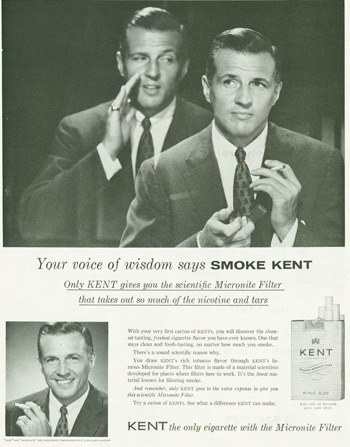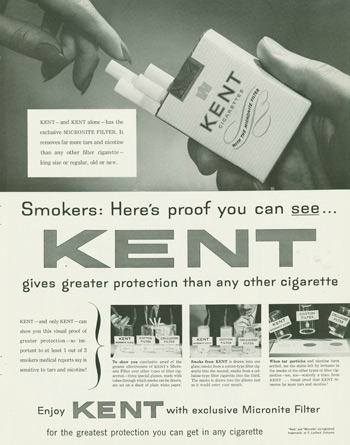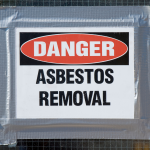Historical asbestos use is widely documented – in the 20th century, it was utilised in building materials, fire and heat protection, insulation products and various other settings, largely because it is heat resistant to high temperatures.
In the 1950s, an American cigarette company, Kent, introduced a new cigarette brand, including a micronite filter. Kent launched the new product at a press conference at New York’s Waldorf-Astoria, touting the Micronite filter as “the greatest health protection in cigarette history.”
The problem with a micronite filter is that it contains asbestos. In an article published by the American Association for Cancer Research, researchers studied unopened packs of cigarettes produced by Kent at the time.


The study found that approximately 10 milligrams of crocidolite asbestos were present in each cigarette filter, and asbestos fibres were detectable in the smoke from the first two puffs of each cigarette. Taking a pack-a-day smoker as an example, which was common at the time, a person would inhale more than 131 million asbestos fibres per year, with more than 350,000 asbestos fibres a day.
Research suggests that smokers consumed “13 billion Kents between March 1952 and May 1956.”
The findings are particularly shocking when you consider that there is no safe level of asbestos exposure, and according to the Occupational Safety and Health Association of America, any level of exposure to asbestos should be taken very seriously.
Asbestos-related diseases’ latency period means that the effects of asbestos in cigarette filters are still revealing themselves now. Last month, a Florida jury awarded a former Kent smoker more than $3.5 million in damages following a mesothelioma diagnosis.
The other issue with asbestos in cigarette filters was the effect of asbestos exposure on the workers who produced the filter material. At the plants for the company in Massachusetts, Kentucky and New Jersey, there are anecdotal reports of numerous deaths from mesothelioma, including one case of a woman who died of the disease, although her only known exposure came from washing her husband’s work clothes.
Many of those who smoked the affected Kent cigarettes have had difficulty in proving it was the asbestos filters that caused their mesothelioma. Of 23 cases that have gone to trial, the cigarette and filter manufacturers have won 17, insisting that plaintiffs have been exposed to asbestos in other ways.



